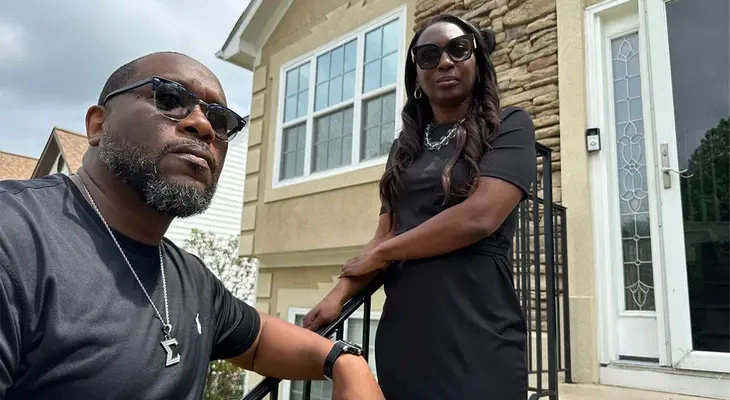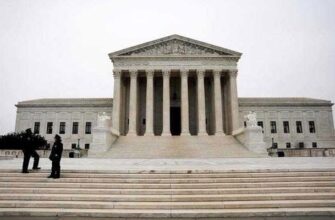## Supreme Court to Weigh Accountability for Law Enforcement in Wrong-House Raid Case
The U.S. Supreme Court is preparing to hear arguments in a significant case concerning the legal avenues available to individuals harmed by law enforcement errors. At its core, the lawsuit involves Trina Martin, who filed suit against the federal government following a devastating incident where FBI agents mistakenly raided her home in Atlanta, Georgia.
On October 18, 2017, before dawn, Ms. Martin’s residence was forcibly entered by FBI agents. The agents reportedly stormed into her bedroom, brandishing weapons and pointing them at Ms. Martin and her then-boyfriend while her seven-year-old son cried out for his mother from another room.
According to Ms. Martin, she was prevented from comforting her child for what felt like an eternity before agents realized they had targeted the wrong house in their search for a suspected gang member. Her attorneys are now appealing to the Supreme Court seeking reinstatement of her 2019 lawsuit, alleging assault and battery, false arrest, and other violations.
A lower court initially dismissed the case, a decision upheld by the 11th U.S. Circuit Court of Appeals. The central question before the justices revolves around the circumstances under which the federal government can be held accountable for actions taken by law enforcement officials.
Ms. Martin’s legal team argues that Congress explicitly authorized such lawsuits in 1974, following a series of incidents involving erroneous home raids. They contend that denying her claim would leave individuals with little recourse after experiencing similar trauma. “If the Federal Tort Claims Act provides a cause of action for anything, it’s a wrong-house raid like the one the FBI conducted here,” her lawyers wrote in a brief to the Supreme Court.
The Government’s Perspective
- Lawyers representing the government argue against allowing courts to “second-guess” law enforcement decisions.
- They claim the raid differed from those that prompted Congressional action, citing advance work done by agents in attempting to locate the correct residence.
- The 11th Circuit agreed, suggesting courts shouldn’t fault officers for “honest mistakes.”
According to court documents, the lead agent attributed the error to a personal GPS device that led him astray; the intended target resided just houses away.
Lasting Impact
The incident left Ms. Martin, her then-boyfriend Toi Cliatt, and their son deeply traumatized.
“We’ll never be the same, mentally, emotionally, psychologically,” Ms. Martin stated in an interview. “Mentally, you can suppress it, but you can’t really get over it.”
The family recounted hiding in a bathroom closet during the raid. Mr. Cliatt was initially handcuffed by agents before they realized he didn’t match the suspect’s description.
The trauma has had significant repercussions:
- Ms. Martin stopped coaching track due to triggers associated with the raid.
- Mr. Cliatt resigned from his truck-driving job, citing an inability to sleep safely behind the wheel. “The road is hypnotizing,” he explained. “I became a liability to my company.”
- Ms. Martin’s son exhibited extreme anxiety, pulling at clothing and peeling paint off walls.
Mr. Cliatt initially believed it was a burglary attempt and instinctively moved towards a shotgun he kept in the closet. He expressed concern that Ms. Martin could have been harmed if she had confronted the agents while armed.
Conflicting interpretations of federal law exist among other appeals courts, creating legal uncertainty. The Supreme Court’s decision is expected to establish a clearer standard for these types of cases.
Following the initial intrusion, an FBI SWAT team member released Mr. Cliatt from his handcuffs and agents proceeded to the correct address where the intended suspect was apprehended. Despite the ordeal, Ms. Martin’s family received no compensation from the government, not even for the damage to their home.
Ultimately, Ms. Martin emphasized the emotional toll on her son as the most distressing aspect of the event. “When you’re not able to protect your child or at least fight to protect your child, that’s a feeling that no parent ever wants to feel,” she said.



